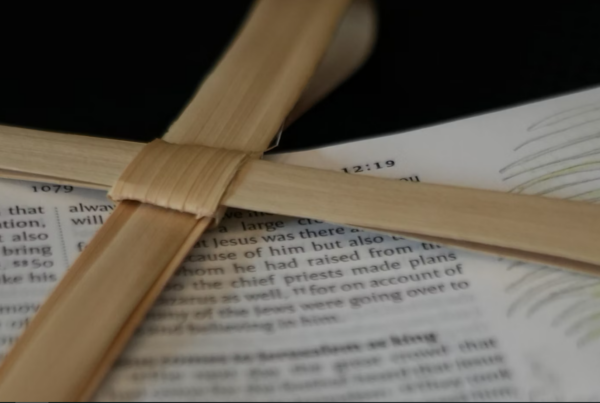Jim Dykstra experienced what he describes as a “crisis of call” when his job in pastoral ministry suddenly concluded. In the wake of that loss, he learned that “calling” is not defined by a job. This personal calling story is part of a series on purposeful living.
A sense of “calling” is not unique to our Christian faith, but it’s an especially familiar framework and terminology for those of us who serve in full-time church occupations. Yet, as church leaders, we do experience a unique sort of call. We are set apart and gifted by God for a particular ministry within the church, which is the body of Christ. We have even gone so far as to title our invitation to ministry within a particular congregation as “a call.”
We can note the special calls received by many biblical characters, including the likes of Moses, Isaiah, and Paul. Though most of us cannot describe the receiving of our call with such a vivid voice or presence of God as a burning bush or a blinding light, we are confident that God has personally invited us into teaching the Word and shepherding souls to God. A call, then, provides a peculiar sense that what we are doing is not simply to boost our own egos; rather, we are where we are and do what we do because this is where God wants us to be. We press that one step further when called by a church or other ministry and we receive the confirmation and affirmation of our calling by that body of people. How wonderful this is! Indeed, this is great cause for celebration!
Unfortunately, however, many in full-time ministry have found that our work doesn’t always go according to plan and is not always appreciated. Sometimes that is our own fault and we, in all honesty, need to step back and reevaluate our particular call. A sabbatical or even a few days of retreat from the pressing schedules of ministry can be a valuable and quick season of refreshment for us. At other times, ministries might, for various real or supposed reasons, determine to withdraw the call they had extended and suggest that it is time for us to look for work elsewhere.
I found myself in that difficult place 13 years ago, being parted against my will from a church and congregation I had been called to. I was suddenly without a job and benefits, without the fellowship of my local church, and without peer support. I was also faced with the question of calling and wondered if I had possibly lost my call when my pastoral position ended.
While this particular situation was unique to me, forced transitions are not, and they often become a crisis of calling. They can lead us into a spiritual and emotional abyss, especially for us in ministry because we lose the connections with the people with whom we have been serving. In the cases where a parsonage is involved, we may also lose our home. And we may find that many of our peers aren’t sure how to respond and are unwilling to walk through this with us. Indeed, that is a crisis situation!
Now, as I approach retirement, some of those questions about loss of call are resurfacing. What will I do? Will I be the same person? Do I still have a call? Transitions, generally, are always going to be seasons of stress.
I have not, thankfully, needed to walk through this alone. My wife has stood faithfully with me through all these years and through difficult transitions. I’ve been given opportunities for healing and retooling. I have found new friends to walk with me. After waiting on God’s timing, I was also given calls to re-engage in ministry—sometimes bi-vocationally and sometimes full time. Following that forced transition, I have returned to ministry for the last 13 years with an even stronger sense of call than I’d had for the first 27 years of my ministry. My calling is something to celebrate once again! And I am excited to see where God chooses to “reposition” my wife and me for the next season.
My own story has been framed well by what Peter Scazzero has researched and written in his book Emotionally Healthy Spirituality. He describes “the wall,” a representation of the roadblocks that impede our progress as we live out our God-given passion for service. We can respond in various ways to the wall(s):
- We can be reckless, simply hitting the wall and trying to deal with collateral damages.
- We can try to ignore the wall and hope that the problems just go away (which, of course, they seldom do).
- We can take an alternate route around the wall. We might discover that Paul may be suggesting such a course in 1 Corinthians 10:11-13, where we read that God “will not allow us to be tested beyond what we can bear” but will provide a way out. There are times in which, for our own spiritual, emotional, and physical health, we just need to take that way. And it isn’t a wrong or sinful way. It is, after all, a way that God has provided. It is often, however, a way that falls short of God’s best for us.
- We can go through the wall. I just need to say that this is not the easiest way to move forward in our journey. We may have to claw and dig our way through a lot of stuff. We may suffer emotional and spiritual abrasions and times of discouragement, needing to heal and regroup again and again. The good news is that God, who has called us, doesn’t leave us to do this difficult work alone. God goes through the wall with us.
Scazzero describes four benefits of going through the wall—a greater level of brokenness, a greater appreciation for the Holy Unknowing, a deeper ability to wait for God and a greater detachment. You’ll have to read his book to define these benefits, but I can testify that these are real because I have celebrated them in my calling, even before reading about them in his book.
Getting through the wall and landing on our feet on the other side is a great place to be. We have a greater sense of what caused the wall to be present, both personally and in our ministry. We understand better how and why we responded in the way we did and thus might be equipped to react more capably in future situations. We experience the blessing that God is greater than the wall. And, while our new calling may not be the same as what we’d previously held, we step into a new day in a good place, where we have the opportunity to explore further what God’s call means for us.
I have learned that even though a job ends, that doesn’t mean call ends. It evolves. It grows. It emerges in new and unexpected ways. God’s call carries us through all of life!
Disclaimer: Some of the links in this article are affiliate links, meaning that, at no cost to you, we will earn a commission if you click through and make a purchase. However, we were not paid to review or recommend any of the links on this page.

Jim Dykstra
Jim Dykstra is husband to Linda and is a father, grandfather, pastor, church consultant, gardener, camper, woodworker, and home repairman. A graduate of Hope College and Western Theological Seminary, he has served RCA and CRC churches in Wisconsin, Iowa, and Michigan.



